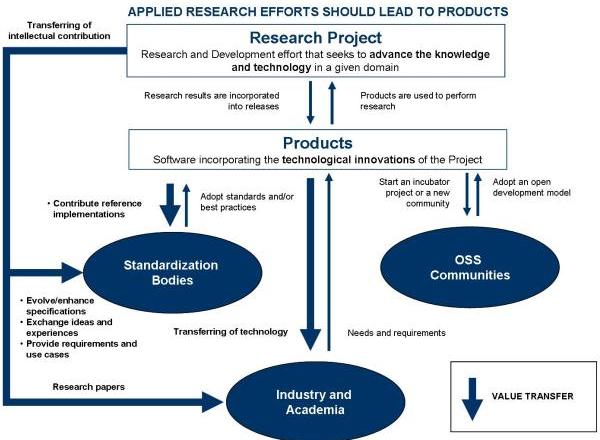| Home | Strategy | Activities | Grants | Publications | People | Sponsors | Contact Us | ||||||||||||||||
Research Philosophy and Methodology
Research Strategy
Vision
Advanced distributed computing and virtualization technologies are expected to transform the way we do computing, communication, networking, and solve large-scale data-intensive scientific, engineering, and business problems in the next few years.
Mission
Our research innovations will be part of the distributed infrastructures and resource provisioning platforms that will fulfill the demands of future scientific and business processes.
Value Statement
The members of the group try to fulfil the following criteria when doing research:
- Perform applied research
- Collaborate with international research centres and companies
- Transfer the results to deliver value for the industry, the research community and the society
We believe that the University serves society through activities related to its educational mission and transferring the results of its research. Today research should be development in a medium term and innovation in a longer term.
Research Model

The Research Group considers research papers and software prototypes as the two main outcomes of a research effort, and collaborative projects, standardization bodies and open-source communities as the main frameworks for collaboration with industry and other research groups.
Any research activity seeks to advance the existing knowledge, techniques, algorithms and tools in a given specific domain. In the specific case of Computer Science, research should aim to develop innovative solutions to meet existing social, economical and industry needs. The two major outcomes from a research project are research papers, which directly transfer the intellectual contribution of the research, and technology prototypes, which incorporates the technological innovations of the activity. The research effort must be enhanced through collaborations with other research institutes and companies around the world in the context of collaborative research projects, standardization bodies or open-source communities. Collaborative projects provide the funding required to support the research. These projects produce original concepts and technology, which may be then subject to standardization if they are found to be relevant enough to be used in real world applications, could provide a reference implementation, or could influence existing standards through exchange of ideas and experiences.
On the other hand, as researchers, we have to take an innovative new idea, show that it can work, and then flesh it out so that it can work in the real world. Creating or contributing to open-source software is a great vehicle for applied research. The software prototypes that are created as a platform to support research can transform into a vehicle to transfer innovation and eventually into commercialized products and spin-off companies.